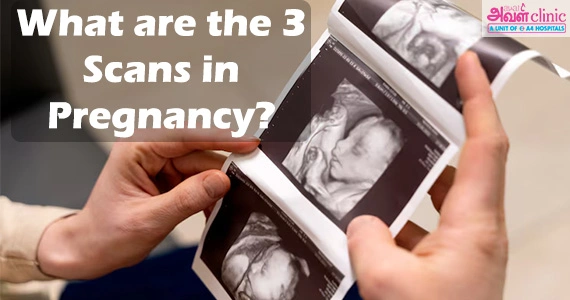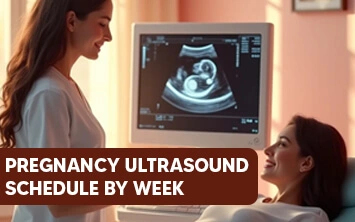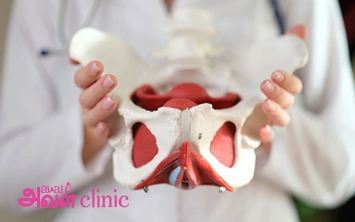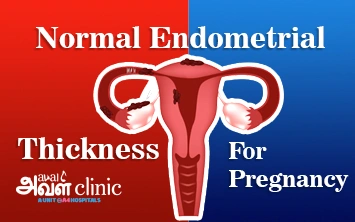Published on: June 13, 2025
Updated on: November 14, 2025
Author: Admin
Pregnancy is a journey of change, anticipation, and constant check-ins with your baby’s development. One of the most important aspects of prenatal care is undergoing routine ultrasound scans to monitor your baby's growth and health.
If you're wondering what are the 3 scans in pregnancy, you're not alone. These scans are critical milestones that every expectant mother will go through during her pregnancy, and each one plays a specific role in ensuring both the mother and the baby are safe.
What are the 3 Scans in Pregnancy?
The three essential scans in pregnancy are:
- Nuchal Translucency (NT) Scan
- Anomaly Scan
- Growth Scan
Let’s break down the purpose and importance of each scan.
1. NT Scan – Nuchal Translucency (11 to 14 Weeks)
The NT scan is the first major scan of pregnancy and is usually done between 11 and 14 weeks. It’s a key part of the first-trimester screening and evaluates your baby’s risk for certain genetic conditions.
Looking for Pregnancy Scans Near You?
Call Now: 80047 80048What Happens During an NT Scan?
A trained sonographer uses an abdominal or transvaginal ultrasound to measure the nuchal translucency, which is a fluid-filled space at the back of your baby’s neck. Increased thickness in this area can signal a higher risk for:
- Down syndrome (Trisomy 21)
- Edwards syndrome (Trisomy 18)
- Patau syndrome (Trisomy 13)
The NT scan is often paired with a double marker blood test for better accuracy.
Key Benefits:
- Assesses fetal viability
- Provides accurate dating of the pregnancy
- Offers early detection of chromosomal anomalies
- Helps plan further diagnostic tests if needed
2. Anomaly Scan – Targeted Structural Scan (18 to 22 Weeks)
The anomaly scan, also known as the level 2 scan or mid-pregnancy scan, is performed between 18 and 22 weeks. This is the most detailed scan of your pregnancy and checks your baby’s overall anatomy.
What Is Checked in an Anomaly Scan?
This scan looks at every part of your baby from head to toe, including:
- Brain, spine, skull
- Heart and great vessels
- Kidneys, bladder, stomach
- Limbs, fingers, and toes
- Placental position and umbilical cord
- Cervical length and amniotic fluid level
It helps detect congenital abnormalities, some of which may be managed better with early diagnosis and preparation. It also provides a more accurate idea of your baby’s expected due date.
Key Benefits:
- Identifies structural birth defects
- Monitors fetal organ development
- Allows planning for advanced care if abnormalities are present
- Can reveal fetal sex (if permitted)
3. Growth Scan – Third Trimester Scan (28 to 36 Weeks)
The growth scan is typically done between 28 and 36 weeks to evaluate the baby’s size, weight, and well-being. It’s especially important in high-risk pregnancies or when there's concern about fetal growth patterns.
Many women wonder growth scan which week is ideal - it’s usually done between 28 and 36 weeks of pregnancy to monitor the baby’s size, weight, and overall development.
What Is Evaluated in a Growth Scan?
- Fetal weight estimation
- Head and abdominal circumference
- Amniotic fluid volume (AFI)
- Placental position and function
- Doppler blood flow (if needed)
- Fetal lie and presentation (breech, cephalic, transverse)
This scan ensures that your baby is growing at a healthy rate and prepares the medical team for any interventions needed close to delivery.
Key Benefits:
- Detects intrauterine growth restriction (IUGR)
- Identifies low or high amniotic fluid levels
- Plans delivery timing if complications are found
- Ensures the baby is in the correct position for birth
Pregnancy Ultrasound Timeline
| Scan | Weeks | Purpose |
|---|---|---|
| NT Scan | 11–14 Weeks | Genetic screening, fetal measurements |
| Anomaly Scan | 18–22 Weeks | Detailed anatomy check |
| Growth Scan | 28–36 Weeks | Fetal weight, position, placenta |
Are These the Only Scans You’ll Need?
Not always. Your doctor might recommend additional scans depending on:
- IVF pregnancy
- History of miscarriage or complications
- Bleeding or pain
- Multiple pregnancy (twins/triplets)
- Gestational diabetes or high blood pressure
- Reduced fetal movements
Common additional scans include:
- Early dating scan
- Cervical length scan
- Doppler scan
- Biophysical profile (BPP)
Conclusion
Understanding what are the 3 scans in pregnancy helps expecting parents prepare for each stage of fetal development. The NT scan offers early reassurance, the anomaly scan provides detailed insights, and the growth scan confirms that your baby is progressing well into the final trimester.
These three scans are not just routine - they are essential. They help detect complications early, guide medical decisions, and provide a window into the baby’s world before birth. For a healthy pregnancy, attend all scheduled scans, maintain regular antenatal checkups, and follow your doctor’s advice.
📍 Looking for Pregnancy Scans Near You?
Get your NT, Anomaly, and Growth scans done with care and precision at Aval Clinics.
We use advanced ultrasound technology to ensure accurate results and safe monitoring throughout your pregnancy.
If you still have any concerns, having a consultation with experts at Aval Clinics is recommended. They can guide you with the most appropriate information based on your health history and preference.
🗓️ Schedule your pregnancy scan now






























